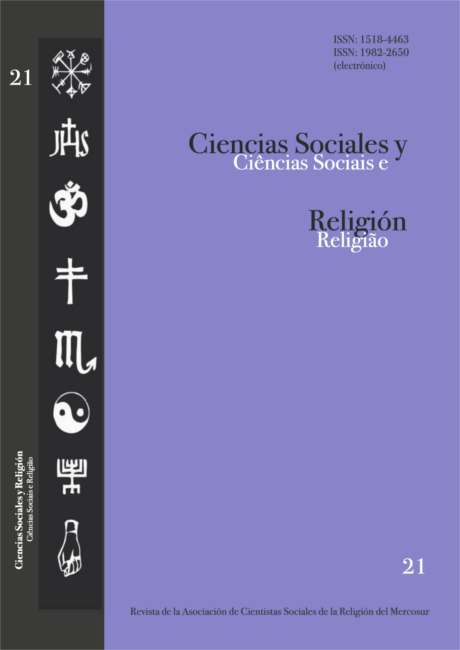Abstract
Each religion tends to consolidate itself more and more; it looks for its independence with respect to all form of State as well as with respect to the other religions with which it competes. Indeed, a new conception of laicism, understood like a common space, a public place of coexistence is emerging. And therefore original identities are in crisis, together with consolidated traditions, borders and limits. It has been maintained that the laicism necessarily implies to grant the freedom of consciousness and not only to assure the freedom of consciousness. The question is still more complex when a decreasing priority order between freedom and belief, freedom of knowledge and freedom of critic is established. The recognition of religion is also present in some cases in the fundamental laws of the States, their constitutions, in which the natural diversification between State and Church is emphasized, but interchanges and co-participations are admitted.
References
BOGOMILOVA, Nonka. Religion, Law and Politics in the Balkans in the End of the 20th and the Beginning of the 21st Century. Sofia: Iztok-Zapad, 2005.
BOGOMILOVA-TODOROVA, Nonka. Le rôle de la religion dans la transition bulgare. In: NAIDENOV Georgi et al. La Bulgarie: une tradition menacée Neuchâtel: EDES, 1996. p. 157-169.
BOLGIANI, Francesco; MARGIOTTA BROGLIO Francesco; MAZZOLA Roberto (Eds.). Chiese cristiane, pluralismo religioso e democrazia liberale in Europa. Bolonia: Il Mulino, 2006.
BONIOLO, Giovanni. Laicità. Una geografia delle nostre radici. Turín: Einaudi, 2006.
BONTEMPI, Marco. Religious Pluralism and the Public Sphere. In: BETTIN LATTES Gianfranco; RECCHI Enrico (Eds.). Comparing European Societies.. Bolonia: Monduzzi, 2005. p. 155-186.
BOROWIK, Irena. Orthodoxy Confronting the Collapse of Communism in Post-Soviet Countries. Social Compass, ano 53, n. 2, p. 267-278, 2006.
CAMBI, Franco. Laicità, religioni e formazione: una sfida epocale. Roma: Carocci, 2007.
CAPPELLETTI, Vincenzo. Laicità e scienza. Studium. p. 643-649, sept.-oct. 2006.
CIPRIANI, Roberto. Religion as Diffusion of Values. «Diffused Religion» in the Context of a Dominant Religious Institution. In: FENN Richard K. (ed.). The Blackwell Companion to Sociology of Religion. Oxford: Blackwell, p. 292-305, 2001.
CIPRIANI, Roberto. Laicità e religione nella sfera pubblica. Rivista Lasalliana, ano 77, n. 1, p. 439-463, genn.-mar. 2010.
DAVIE, Grace. Religion in Modern Europe. Oxford: Blackwell, 2000.
DAVIE, Grace. Europe: The Exceptional Case. Londres: Darton-Longman Todd, 2002.
DAVIE, Grace. HERVIEU-LÉGER Danièle (Eds.). Identités religieuses en Europe. París: La Découverte, 1996.
DE VITA, Roberto; BERTI Fabio (a cura di). La religione nella società dell'incertezza. Milán: Franco Angeli, 2001.
MARINOVIĆ JEROLIMOV, Dinka; ZRINŠČAK Siniša. Religion Within and Beyond Borders: The Case of Croatia. Social Compass, ano 53, n. 2, p. 279-290, 2006.
MARTIN, D.avid. On Secularization: Towards a Revised General Theory. Aldershot: Ashgate, 2005.
TENTORI, Tullio. Il rischio della certezza. Roma: Studium, 1990.
TOMKA, Miklós. Is Conventional Sociology of Religion Able to Deal with Differences between Eastern and Western European Developments? Social Compass, ano 53, n. 2, p. 251-265, 2006.

This work is licensed under a Creative Commons Attribution-NonCommercial-ShareAlike 4.0 International License.
Copyright (c) 2020 Roberto Cipriani
